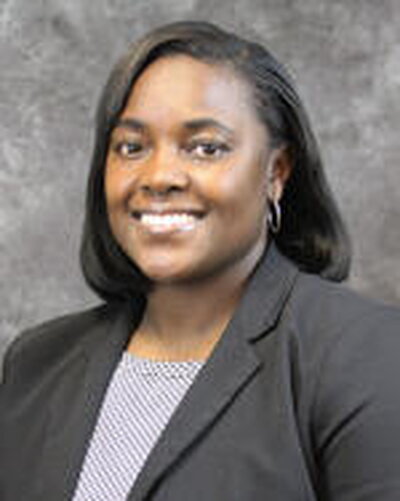
Professor Christian Ray is always striving in the chemistry courses he teaches to connect with the students to ensure they are learning the material and reaching their potential. An instructional professor and director of general chemistry, Ray was promoted to associate professor this past summer, and a year ago, he received the Karen Wold Level the Learning Field Award given by the Division of Disability Resources and Educational Services (DRES) on campus.
By getting to know his students, Ray has become more aware of challenges that many students face, including physical, mental, cognitive and emotional issues, and he’s proactive about referring students who are not already receiving assistance from DRES.
“For me, the biggest thing is just being open and approachable, because a lot of these challenges we can’t know about,” Ray said. “If you just look at a person, you can’t know what’s going on, but if you’ve set a culture in class that’s so rigid or so intimidating, then they’re not going to come talk to you. And I think that’s what I do really well is, by in large, people can feel comfortable coming and talking to me or let me know things aren’t going well.”
The award Ray received is named in memory of Karen Wold, an access specialist at DRES, who spent her career engaging with her students and faculty to find solutions to academic challenges. The purpose of the award is to identify exemplary members of the Illinois faculty and staff who advocate on behalf of students and implement educational strategies, technologies and accommodations related to disabilities that provide equal access to academic resources.
His nominator said that he is one of the most caring and compassionate professors, welcoming and inviting to all students, continuously reaching out asking for educational materials on how to best interact with a student who may have a disability.
As an instructor, Ray said he has become very familiar with DRES by getting to know U of I wheelchair athletes who have been students in class, making student referrals to DRES and working with DRES staff to provide students with resources they need. He said the university is very lucky to have a strong program like this. Some students are already connected with DRES before a class begins, but others who might benefit from the support services are not always connected or aware.
“A lot of our kids come from smaller towns, and they don’t really know what the resources are,” said Ray, who does not hesitate to refer students if he thinks there’s a reason. He said the support has made a difference for some students.
“If in doubt, refer them, because the DRES folks do a great job helping students find out what accommodations might be available to them," he said.

The majority of faculty in the department do a great job working with students to meet whatever requirements DRES recommends for assistance, Ray said.
He has worked with DRES to accommodate a variety of challenges, including vision, hearing and other physical barriers as well as learning disabilities, anxiety, Post-Traumatic Stress Disorder and more.
One example, he said, was figuring out how to accommodate a service dog in a lab.
“We were able to make it work. It was a challenge, but it was a fun challenge,” he said.
The department is very in tune, Ray said, with ADA standards and best practices for accessibility thanks to the expertise and efforts of staff like Candice Solomon-Strutz, assistant director of instructional technology.
“So, we have been really ahead of the curve,” Ray said.
Solomon-Strutz said providing accessible digital content reduces barriers and can enhance everyone's learning environment.
Several assistive technology tools and resources on this campus increase access and opportunity for our students, faculty, and staff, she said. Those include: Aira, Otter.ai, ZoomText, JAWS, captioning services, DRES, and the IT Accessibility Liaison program.
“As most can relate, facilitating virtual meetings creates unique challenges,” she said, adding that the Illinois Technology Accessibility Review Committee has published some Best Practices for Inclusive Virtual Meetings to increase awareness of virtual meeting techniques.
This year, multimedia is the most popular instructional technology resource, she said, and the university partnered with Kaltura to host videos on the Illinois Media Space website where all videos uploaded automatically request captions using the Automatic Speech Recognition (ASR) machine.
She cautions, however, that ASR captioning is 70-90 percent accurate, based on various factors, so it is the video owner's responsibility to edit and review the captions to ensure the recording meets standards.
“This service has become an excellent resource for faculty and staff, providing a way to store and show videos and keep them contained only in the course they select,” Solomon-Strutz said.
She said several instructors have benefitted from recording lectures in advance in the Chemistry Filming Studio (469 Noyes Lab), and you can contact Alex Ibarra at aibarr@illinois.edu to receive multimedia expertise and or schedule an appointment.
Need Accommodation?
For Students – Disability Resources and Educational Services (DRES)
For Faculty and Staff – Office for Access and Equity (OAE)